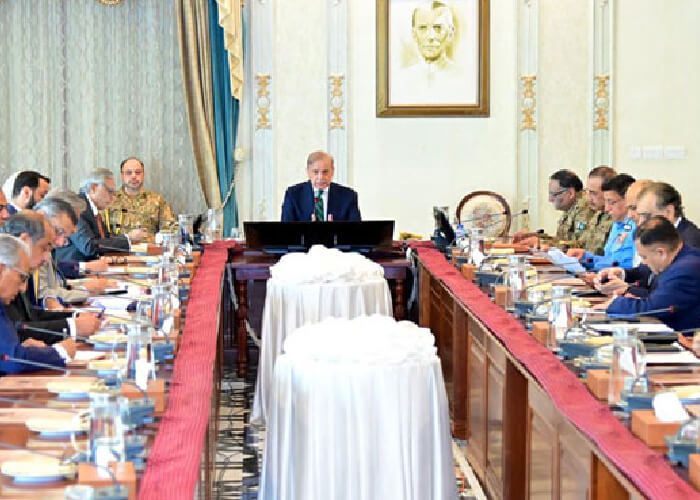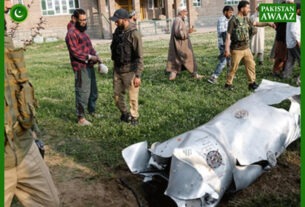NSC Empowers Armed Forces to Respond to Indian Aggression: The National Security Committee (NSC) has empowered Pakistan’s armed forces to respond to Indian aggression that claimed the lives of 26 civilians and injured 46 others.
Prime Minister Shehbaz Sharif chaired the NSC meeting and issued a strong statement condemning the attacks. The forum granted full authority to the armed forces, enabling them to respond effectively and decisively.
According to the NSC, Pakistan reserves the right to act at a time and place of its choosing. This decision reinforces the country’s commitment to sovereignty and regional peace.
The Committee offered prayers (Fatiha) for those martyred in the attacks. It also condemned India’s strikes on areas like Muzaffarabad, Kotli, Sialkot, and Bahawalpur—targeting civilians under false claims of hitting terror camps.
The Neelum–Jhelum Hydropower Project was among the key targets. This deliberate attack violated international norms and was classified as an act of war by the NSC.
In retaliation, Pakistan’s armed forces shot down five Indian jets and a drone, showcasing their operational readiness. NSC reaffirmed that any attempt to justify such violence using fabricated narratives would be strongly rejected.
Pakistan had previously allowed international observers and media to visit the alleged terror sites on May 6. However, India declined the offer, fearing exposure of its misleading claims.
Referring to Article 51 of the UN Charter, the NSC reiterated Pakistan’s inherent right to self-defense. It emphasized that no compromise will be made on national sovereignty or the safety of its citizens.
Also Read:
Pakistan Strikes Indian HQ, Downs Five Jets in Retaliation
The Pahalgam incident on April 22, 2025, led to the deaths of 26 tourists and further escalated tensions. Indian Prime Minister Narendra Modi quickly blamed Pakistan and vowed to punish those responsible, despite a lack of evidence.
India responded by banning Pakistani ships, halting imports, suspending postal services, and closing airspace. Additionally, India declared defense personnel in Pakistan’s High Commission persona non grata.
Pakistan reacted by suspending all trade and warning India of a proportional response to any treaty violation or military misstep. Tensions continued to mount, with strong rhetoric exchanged on both sides.
International voices, including Iran’s Foreign Minister, have called for restraint and offered mediation. Despite these efforts, the regional atmosphere remains tense and uncertain.
Also Read:
UN Security Council Discusses Pahalgam Fallout
Read More:
COAS Iranian FM Discuss Bilateral Coordination, Regional Issues




